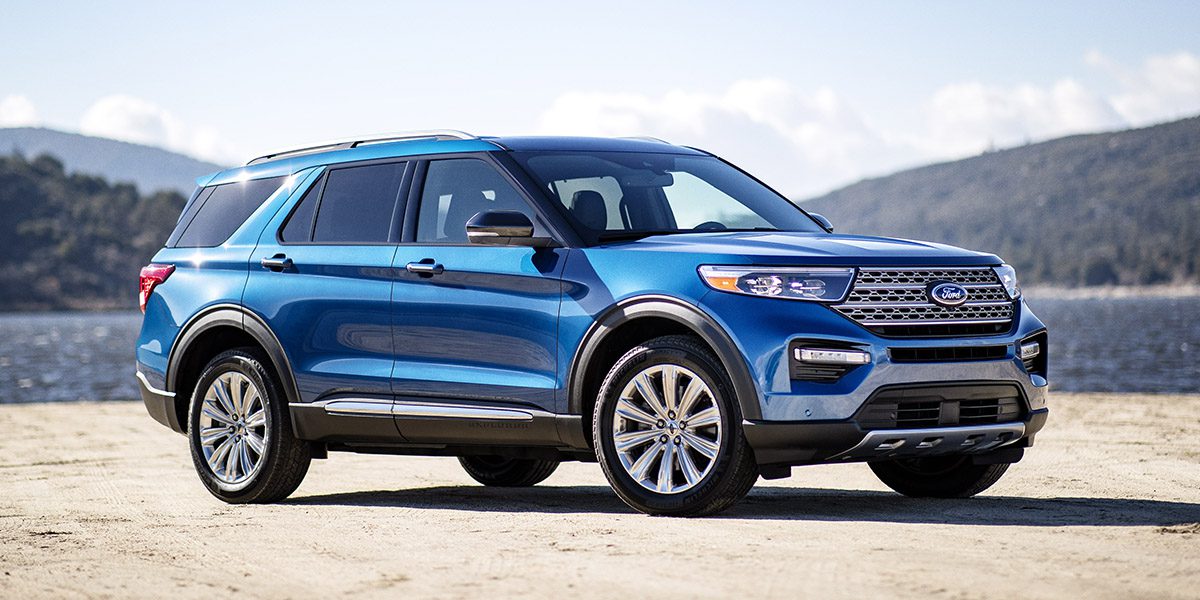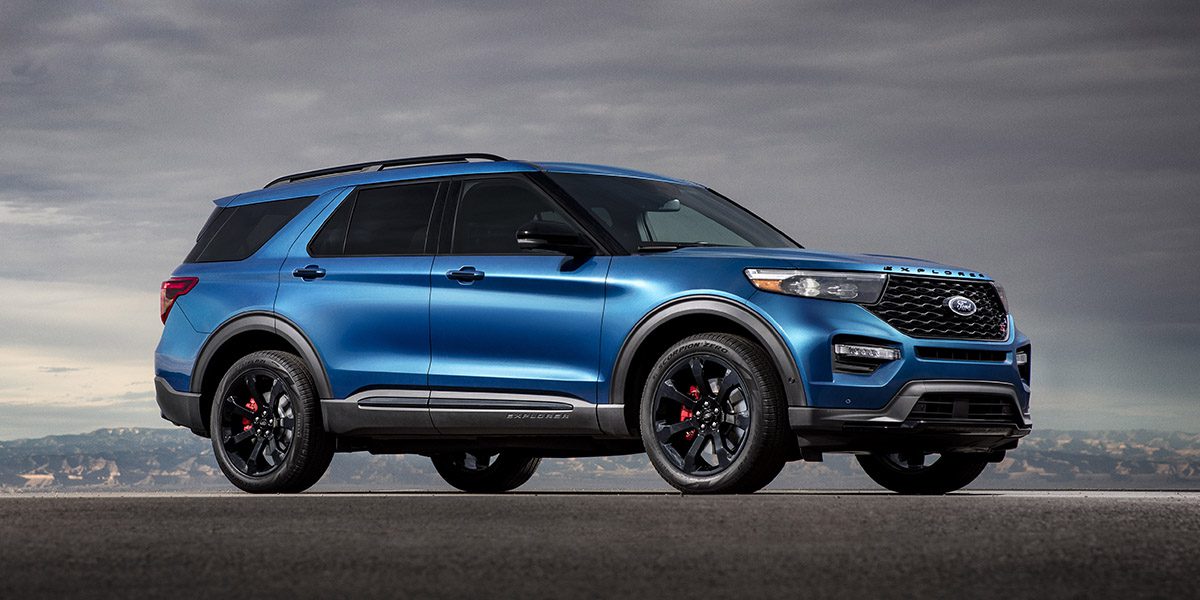Pros: Broad model lineup; roomy first- and second-row seating; acceleration in ST and Platinum models; high towing capacity
Cons: Third-row room is not among the best in class; top models get very expensive
CG Says: The Explorer is Ford’s three-row midsize SUV, and it’s been redesigned from the ground up for 2020 on new rear-wheel-drive-based architecture. The Explorer lineup gains a long list of new technology features, upgraded powertrains, and fuel-saving Hybrid and performance-oriented ST models. All-wheel drive is standard on the ST and line-topping Platinum models and available on all other trims. The base engine is a 300-horsepower turbocharged 2.3-liter 4-cylinder. The performance engine is a twin-turbocharged 3.0-liter V6 that is rated at 365 hp in the luxury Platinum model or 400 hp in the sporty ST. The Hybrid’s powertrain is a 3.3-liter V6 paired with an electric motor that produces a combined 318 hp. All engines are mated with a 10-speed automatic transmission. The Explorer’s towing capacity is increased with the redesign; turbo V6 models can tow up to 5600 pounds. New available features include Evasive Steering Assist, which can provide steering support to avoid a collision; Active Park Assist 2.0, an automatic parking system that controls the throttle, steering, shifting, and braking; front and rear automatic braking; an upgraded Terrain Management System with seven drive modes; and adaptive cruise control that now includes stop-and-go capability. Available safety features include forward collision warning with pedestrian detection and automatic emergency braking, blind-spot alert, lane keep assist, and automatic high-beam headlights. The Explorer has long been one Ford’s best-selling vehicles, and the ambitiously expanded model lineup for 2020 is evidence that Ford continues to consider the Explorer one of its key products. In addition to its “something for nearly everyone” roster of trim levels, the Explorer boasts an impressive menu of available comfort, safety, and technology features, and the move to rear-wheel-drive architecture improves its handling and towing capabilities. It isn’t as outright commodious as rival three-row midsize SUVs, and the bottom-line prices rise very quickly, but the new Explorer’s attributes make it well worth considering.
| Class | Midsize SUV |
| Body Style(s) | 4-door wagon |
| Passenger Count | 7 |
| Drive Wheels | rear-wheel drive, all-wheel drive |
| Manufacturer | Ford |
| Nation of Manufacture | USA |
| Base Prices | XLT: $37,870 AWD XLT: $39,870 Limited: $49,325 AWD Limited: $51,325 AWD ST: $56,220 AWD Platinum: $59,730 Hybrid Limited: $53,475 AWD Hybrid Limited: $55,670 |
| Base Engine turbocharged 2.3-liter 4-cylinder (XLT, Limited) |
| Horsepower 300 |
| Std. Transmission 10-speed automatic |
| Avail. Transmission NA |
| EPA City Range (mpg) 20-21 |
| EPA Hwy Range (mpg) 27-28 |
| Optional Engine turbocharged 3.0-liter V6 (ST, Platinum) |
| Horsepower 365 (400 in ST) |
| Std. Transmission 10-speed automatic |
| Avail. Transmission NA |
| EPA City Range (mpg) 18 |
| EPA Hwy Range (mpg) 24 |
| Optional Engine 3.3-liter V6/electric motor (Hybrid Limited) |
| Horsepower 318 |
| Std. Transmission 10-speed automatic |
| Avail. Transmission NA |
| EPA City Range (mpg) 23-27 |
| EPA Hwy Range (mpg) 26-29 |



